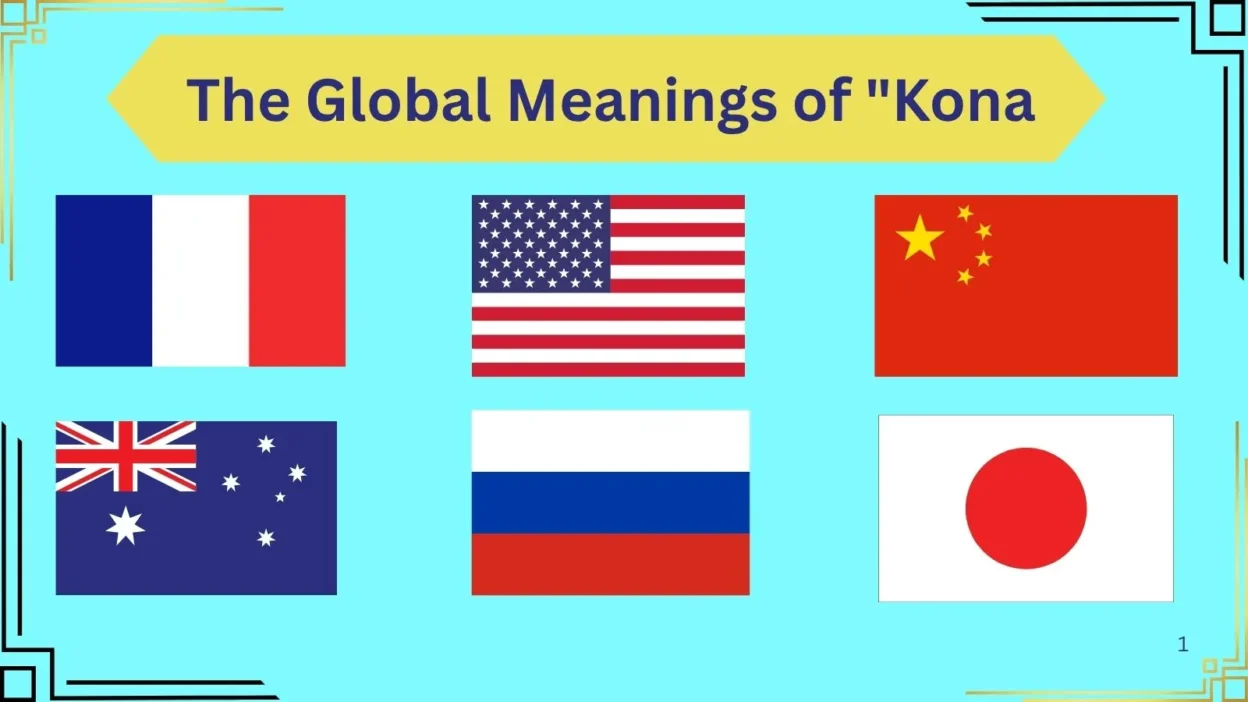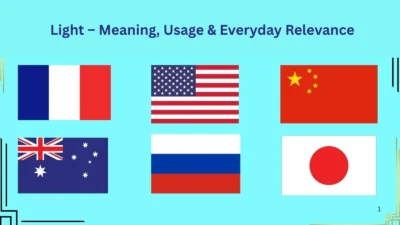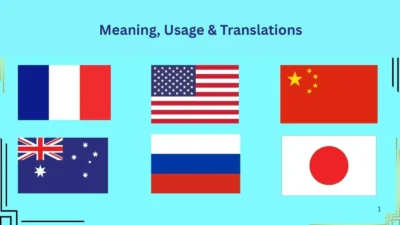If you’ve come across the word “Kona” and feel unsure about what it means, it’s important to know that it can have different meanings depending on the context.
Most commonly, “Kona” is a place name in Hawaii, known for its beautiful coast and coffee plantations. In Hawaiian language, it means “leeward” or the side sheltered from the wind.
If you’re learning about geography, travel, or Hawaiian culture, understanding “Kona” will help you recognize its significance and use it correctly when talking about locations or cultural topics.
🌏 Primary Meanings by Region
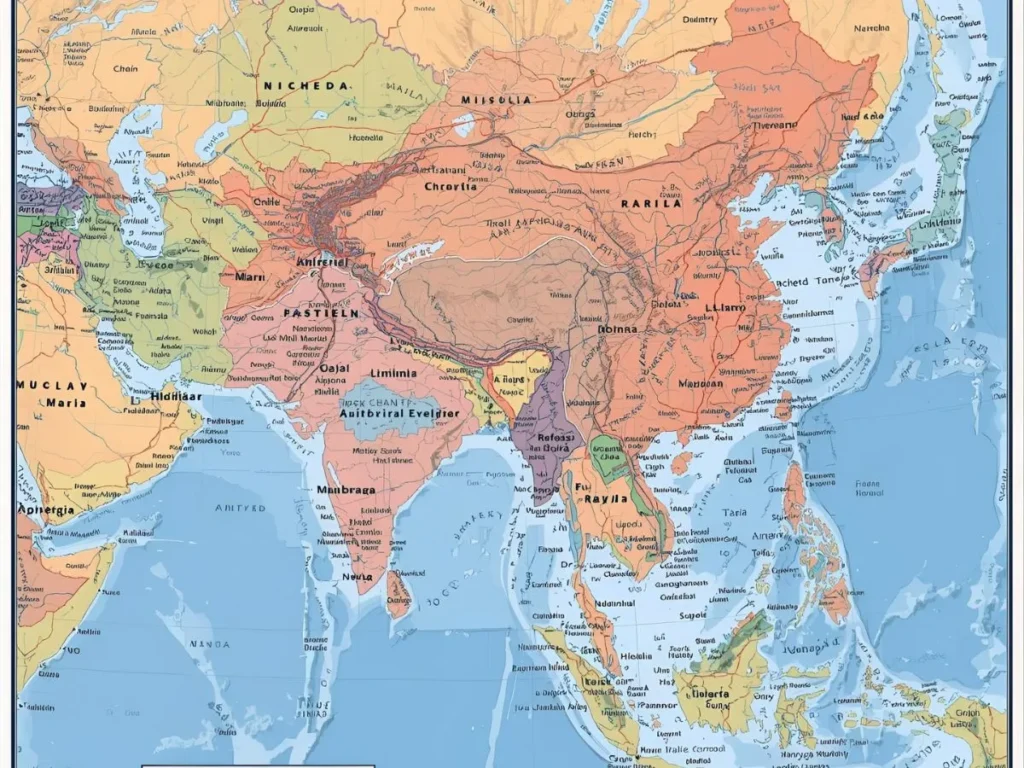
🌺 Pacific Origins
- Hawaiian – “Leeward side” (opposite of windward)
- Maori – No direct meaning (similar to “kōhao” – “hole”)
- Tahitian – No direct meaning (similar to “ʻōna” – “his/hers”)
🗾 East Asia
- Japanese – “Powder” (粉/こな)
- Korean – No meaning (phonetic: 코나)
- Mandarin – No meaning (similar to “kěnà” 肯纳 – “to accept”)
- Cantonese – Similar to “gwo3 naa5” (過啦) – “already passed”
🇮🇳 South Asia
- Hindi – “Corner” (कोना)
- Bengali – “Corner” (কোণা)
- Sanskrit – “Angle” (कोण)
- Tamil – “Angle” (கோணம்)
- Telugu – “Corner” (కోణం)
- Malayalam – “Corner” (കോണം)
🌍 Africa
- Swahili – No meaning (similar to “kona” – “to scrape”)
- Yoruba – “Not expensive” (“Kò ná”)
- Zulu – Similar to “khona” – “here/there”
- Xhosa – Similar to “khona” – “presence”
- Amharic – No meaning (similar to “k’ona” – “red”)
🌎 Americas
- Quechua – “Young woman” (historical term)
- Navajo – Similar to “kǫ́” – “fire”
- Mapudungun – No meaning (similar to “kona” – “young man”) Europe
- Icelandic – “Woman” (formal)
- Finnish – Slang for “dirt”
- Spanish – Similar to vulgar term (avoid)
- Portuguese – Similar to vulgar term (avoid)
- Italian – Similar to vulgar term (avoid)
- Greek – Similar to “góna” (γωνία) – “corner”
- Albanian – No meaning (similar to “këna” – “please”)
🕌 Middle East
- Arabic – “We were” (كنا)
- Hebrew – “Buyer” (קונה)
- Persian – “Corner” (کونا)
- Turkish – Similar to “köşe” – “corner”
- Kurdish – No meaning (similar to “kon” – “day”)
Kona meaning
Kona can mean several things depending on the language and context:
It means “leeward side of an island” in Hawaiian, referring to the dry, sunny side.
It’s a popular place name in Hawaii, especially famous for Kona coffee.
In Japanese, Kona (粉) means “powder” or “flour.”
In some African and Indian dialects, Kona can mean “corner” or “angle.”
It’s also used as a name for people, pets, and brands, symbolizing strength, calmness, or nature.
🗣️ Other Languages & Dialects
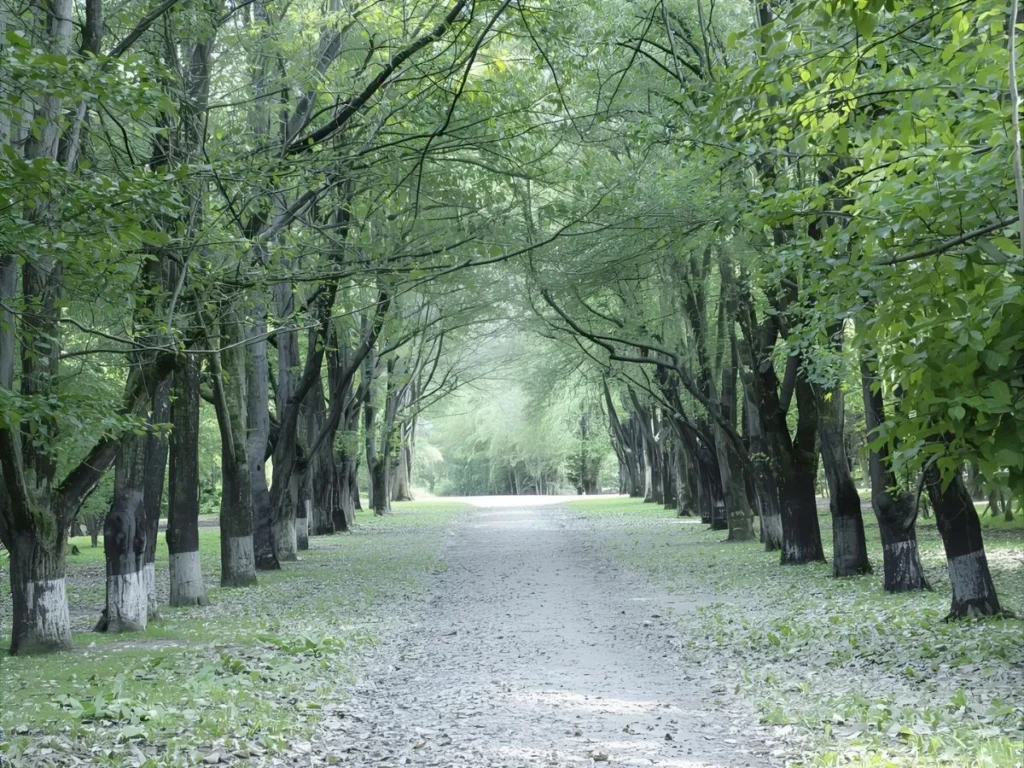
Southeast Asia
- Indonesian – No meaning
- Malay – No meaning
- Tagalog – No meaning
- Thai – Similar to “khon na” (คนหน้า) – “front person”
- Vietnamese – Similar to “có nà” – “there is”
Central Asia
- Kazakh – No meaning
- Uzbek – No meaning
- Turkmen – No meaning
Caucasus Region
- Georgian – Similar to “kona” (ქონა) – “property”
- Armenian – No meaning
- Azeri – No meaning
Other World Languages
- Russian – No meaning
- Ukrainian – No meaning
- Polish – No meaning
- Hungarian – No meaning
- Romanian – No meaning
- Dutch – No meaning
- Swedish – No meaning
- Norwegian – No meaning
- Danish – No meaning
Special Cases & Interesting Notes

Linguistic Connections
- Proto-Indo-European – Possible root “*kon-” meaning “angle/corner”
- Austronesian – Possible connection to Hawaiian meaning
Modern Usage
- Brand Names – Kona Bikes, Kona Brewing Co.
- Place Names – Kona, Hawaii; Kona, Egypt
- Pop Culture – Kona in video games (e.g., Pokémon’s Kona Village)
Sign Languages
- ASL – No specific sign
- BSL – No specific sign
Constructed Languages
- Esperanto – No meaning
- Klingon – No meaning
🚫 Potentially Offensive Meanings
- Iberian Romance – Vulgar term in Spanish/Portuguese
- Italian Slang – Similar to vulgar term
💡 Fascinating Facts
- The Hawaiian “Kona” storm pattern affects weather across the Pacific
- In Japanese tea ceremony, “kona” refers to powdered matcha
- Sanskrit’s “kona” influenced geometry terms across South Asia
🌐 Global Summary Table
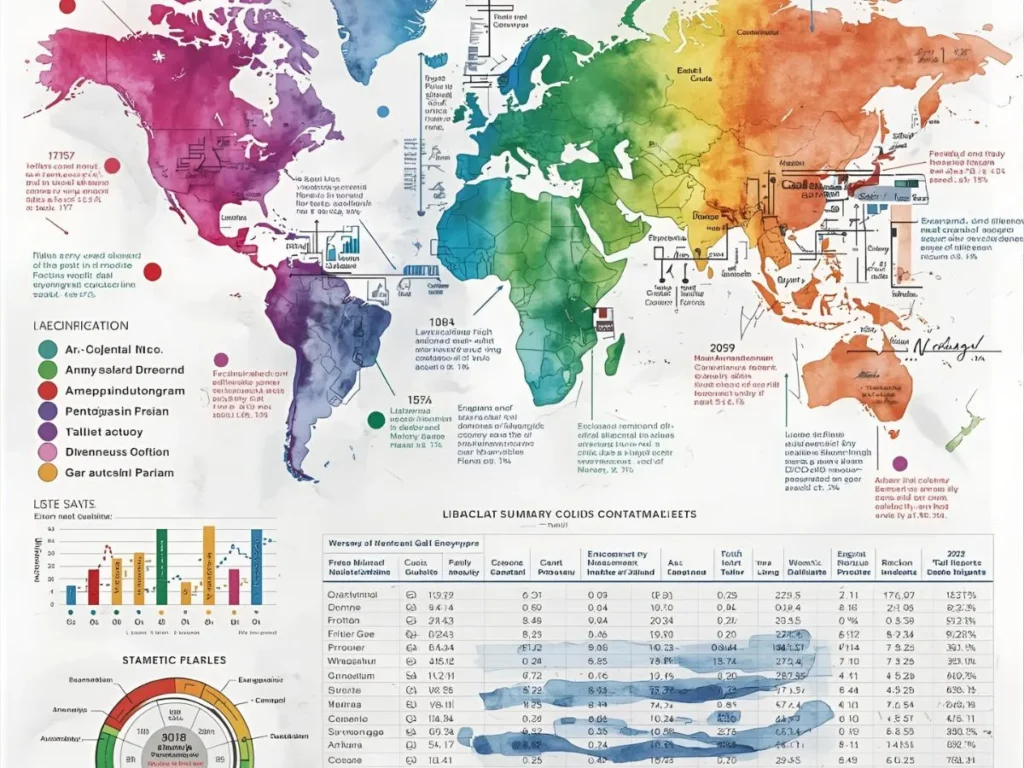
| Region | Primary Meaning | Secondary Meanings |
| Pacific | Leeward side (Hawaii) | – |
| East Asia | Powder (Japanese) | Tired (Japanese slang) |
| South Asia | Corner/Angle | Geometric term |
| Africa | – | Similar to “here” (Zulu) |
| Americas | Young woman (Quechua) | – |
| Europe | Woman (Icelandic) | Dirt (Finnish slang) |
From Hawaiian winds to Japanese tea powder, ‘Kona’ reminds us how language carries geography and culture in every syllable.” 🌊🗺️
Why Are People Searching for “Kona”?

When people search for the word Kona, they’re often curious about its meaning, cultural significance, or its connection to popular destinations, products, or even names. Some are planning a trip to Hawaii, others are looking into Kona coffee, and many just want to understand how this beautiful word is used in different contexts.
This blog will help you:
- Understand what Kona means
- Learn why it’s used so widely in names and brands
- Discover how to use Kona in everyday conversation
What Does Kona Mean
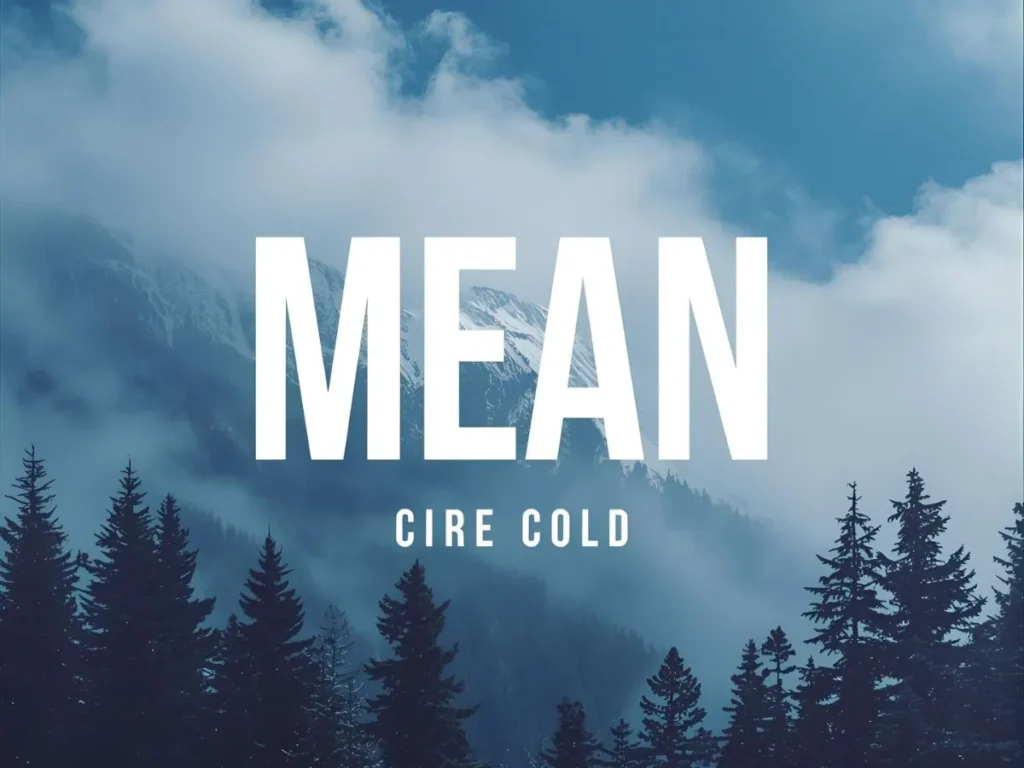
The word Kona originates from the Hawaiian language. Traditionally, Kona was used to refer to the leeward (dry) side of each Hawaiian island. However, over time, the term has become specifically associated with the Kona District on the Big Island of Hawaii.
what does kona mean in hawaiian
Kona means “leeward” in Hawaiian, referring to the dry side of an island opposite the “windward” (wet) side.
It is often used as a place name, most famously in “Kailua-Kona” on the Big Island of Hawaii.
The term can also describe calm, sunny weather conditions typically found on the leeward coast.
In Hawaiian culture, “Kona” can symbolize warmth, peace, and stability due to its pleasant climate.
The word has also become associated with Kona coffee, a world-famous product grown in the Kona district’s fertile volcanic soil.
what does kona mean in portuguese
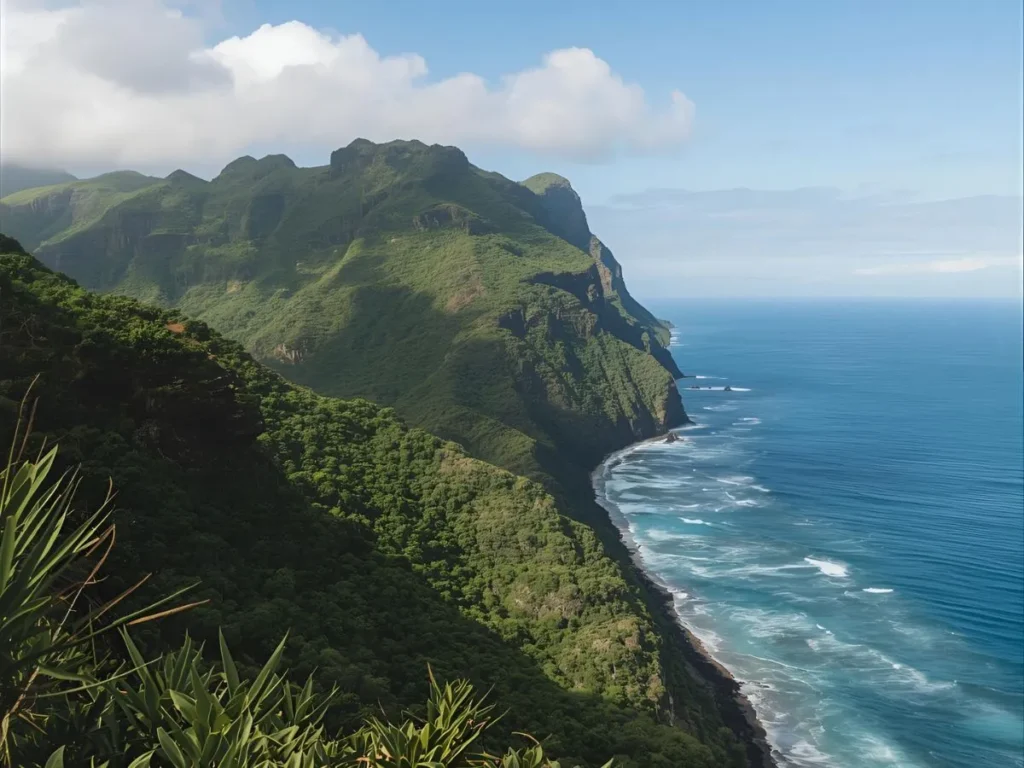
In Portuguese, “kona” doesn’t have a direct meaning — it’s not a native Portuguese word.
It might be recognized as a foreign name or brand, such as the Hyundai Kona car model.
Some Portuguese speakers may associate it with Hawaiian origins, where “Kona” refers to a coastal region or means “leeward side of an island.”
In casual contexts, it could be mistaken for a slang or borrowed word, but it’s not commonly used in Portuguese conversation.
When encountered in Portuguese text, “Kona” usually retains its original, non-Portuguese meaning or serves as a proper noun (place or brand name).
General Meanings of “Kona”:

| Context | Meaning |
|---|---|
| Hawaiian Geography | Dry or leeward side of the island |
| Location | Kona District in Hawaii (home to beaches, volcanoes, and coffee farms) |
| Coffee | World-famous coffee grown in the Kona region |
| Name | Sometimes used as a first name (gender-neutral) |
| Brand/Model | Commonly used in product branding like Hyundai Kona |
👥 User Intent Behind Searching “Kona”

Here are the main reasons users search for this word:
1. Travel & Tourism
- “Where is Kona in Hawaii?”
- “Things to do in Kona”
- “Best beaches in Kona”
💡 If you’re planning a trip to Hawaii, you’re likely researching Kona as a key destination known for its snorkeling, sunsets, and cultural experiences.
2. Coffee Enthusiasts
- “What is Kona coffee?”
- “Why is Kona coffee expensive?”
- “Best Kona coffee brands”
💡 Kona coffee is considered one of the finest coffees in the world, grown only on the slopes of Mauna Loa and Hualalai in Hawaii.
3. Brand or Product Research
- “Hyundai Kona review”
- “Kona bikes vs Trek”
💡 Companies use the word “Kona” to evoke a sense of adventure, exotic appeal, and natural beauty.
4. Personal Names or Baby Names
- “Is Kona a boy or girl name?”
- “Meaning of the name Kona”
💡 Kona is used as a unique baby name, often chosen for its Hawaiian roots and soft sound.
How to Use “Kona” in Conversation
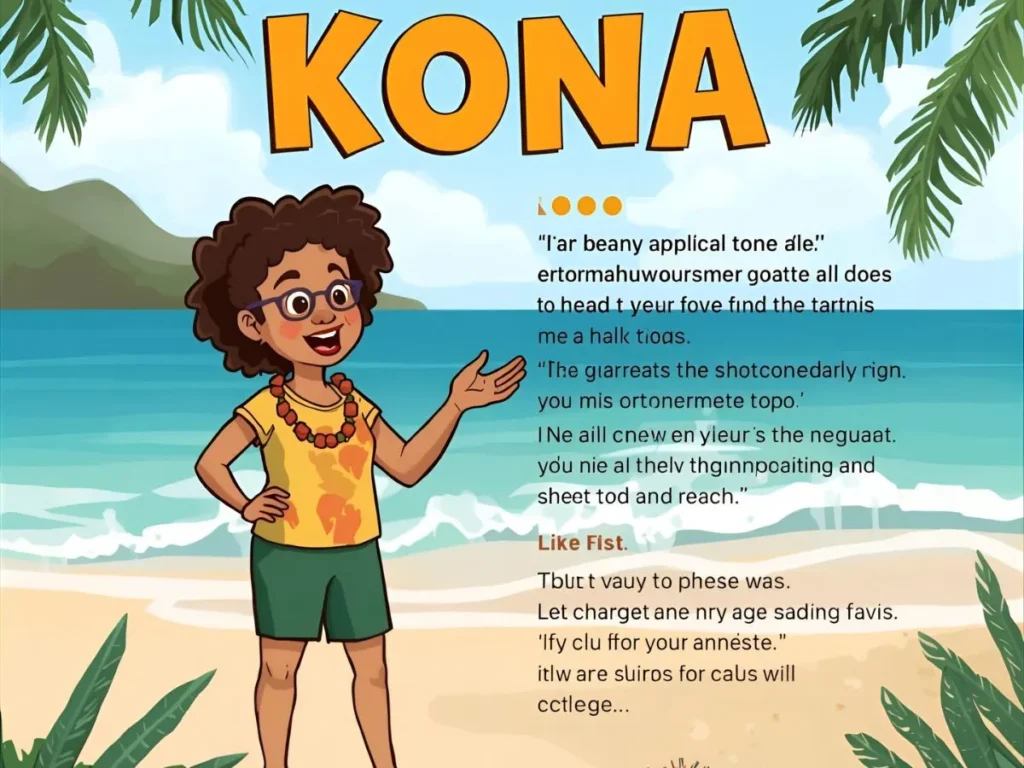
Here are a few practical ways to use “Kona” correctly:
- Travel Talk:
“We’re heading to Kona for the holidays — I can’t wait to explore the beaches!” - Coffee Chats:
“Have you ever tried 100% Kona coffee? It’s so smooth and rich!” - Car Talk:
“I test-drove the new Hyundai Kona yesterday. It’s compact but powerful.” - Baby Name Ideas:
“We’re thinking of naming our daughter Kona — it means ‘lady’ in some cultures and has a calm vibe.”
🌈 Cultural Significance
In Hawaiian culture, names and place-names carry deep meaning. The Kona region has historical importance, being the residence of King Kamehameha I and a center for traditional Hawaiian life. Using or hearing “Kona” connects you to that vibrant cultural heritage.
Why You Should Know “Kona”

- Kona means leeward side in Hawaiian and is often associated with Hawaii’s Big Island.
- It’s used in travel, coffee, product branding, and names.
- People search for it for tourism, cultural interest, product info, or baby name inspiration.
- Using the word correctly helps you communicate more clearly, especially in travel or lifestyle conversations.
🔚 Conclusion
Whether you’re sipping a cup of Kona coffee, planning your next tropical adventure, or simply trying to understand a brand name, knowing what Kona means adds depth and richness to your knowledge. It’s more than just a word — it’s a gateway to Hawaiian culture, geography, and taste.
- What does 5G mean for WiFi? for2026
- What Does Queued Mean in Gmail for 2026
- What Does Coplanar Mean for 2026
- What Does VSOP Mean
- What Does DTC Mean
